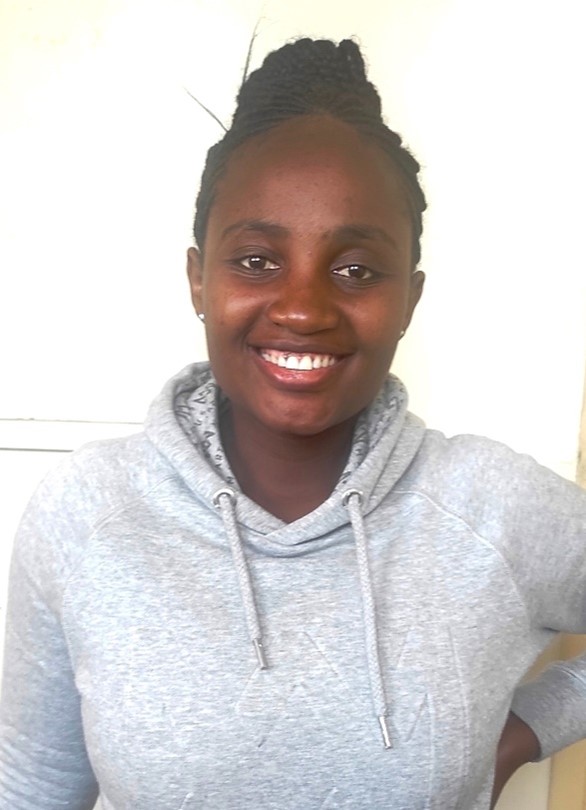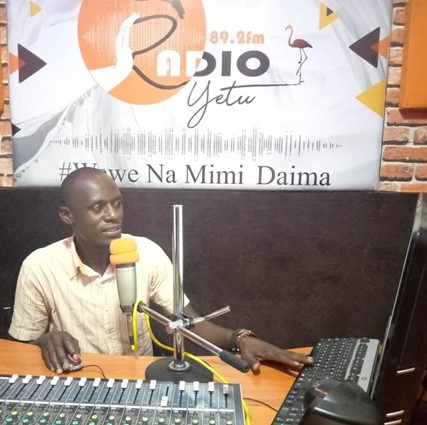Public discussion of menstrual health stirs up Nakuru
Discussing menstrual health in the open makes a positive difference for women.
This startling revelation by two young women in Nakuru comes on the heels of menstrual health management (MHM) programme on Radio Yetu 89.2 FM in Nakuru, which is a member of the DigiRedio Platform. Previously, the culture of concealing menstrual periods as if they were an illegality put women under unwarranted shame. “The programme is letting people to know this is a natural process for every woman,” she says.
As a result of the broadcasts, Sheila has been curious to get the views of her male colleagues and friends. “I was intrigued because the programme attempted to overturn a culture. And pleasantly, my friends say they are now more aware and positive towards menstruation than before.”

Sheila’s experience with menstruation wasn’t bad because her mom and sisters supported her. Her dad too began buying sanitary pads for her and her sisters. However, if her dad had come up to discuss the whole experience with her, she would have felt a lot better.
Her experience is in sharp contrast to Mary Mwangi’s. On the day she heard the broadcastsdiscussion on Menstrual Hygiene on air for the first time, Mary nearly jumped out of her skin. My first reaction was, “Why, O why are they discussing menstruation in public?” All her life, it had been strongly implied – implied because it was too taboo to spell out in words – that menstruation was a private matter, a shame to be hidden from public conversations.
“When I was heading to high school, my mom dropped sanitary pads in my shopping. Horror! Horrrrror! I felt embarrassed to be seen with pads and I rebuffed her but she insisted. All my life I thought menstruation was something a woman experienced in private. However, the programme opened my eyes. I wish I had that kind of information when I was younger.” Now twenty-seven, Mary’s first periods came in Form One. Her mother’s foresight in handing her pads had manifested. It could, however, not compensate for the shame of not knowing how to wear them.
“I was cleaning the corridor when I noticed other girls staring at me. Nobody told me a thing. So I thought I was attracting attention because I was a new girl. What I didn’t know was that I had soiled my dress. A girl called me aside and stated that I was menstruating. I protested that I was wearing pads. She pointed to my dress. She kindly taught me to put them right.”
It was on such reflection that Mary appreciated the MHM programme on Radio Yetu FM. “Men’s involvement in particular is a good touch. A man came to the studio to talk about menstruation. It was shocking but also liberating to hear him call to other men to help women go through this natural female process well. We don’t have to carry it like a sin anymore.”

James Dulo Mbulo, a presenter & news anchor at Radio Yetu reveals that the response to the MHM programme was overwhelming. “It cleared up misconceptions by men. Some called to say that during her periods, a girl is to sit in seclusion on banana leaves, and not greet elders and men because she’s dirty. But having a man in the studio helped. The men called to admit that they had lived in ignorance.”
The highlight of the programme was a woman calling to say that her husband, after listening to the show , had gone out and bought pads for her and their daughters.
Mr Mbulo calls attention to on-going struggles with disposal of pads. “In slum areas there are no disposal bins. The women there, we learnt, wait until it’s night, then fling the used pads to wherever they may land,” he says. Radio Yetu has recently invited the Nakuru County government to come to the show to address this. Although they continue to await government response, he sees nothing but good resulting from the campaign.
This reporting is with support of UNICEF Kenya under the Menstrual Health Management Campaign being run by Centre for Behaviour Change and Communication (CBCC). The campaign purpose is to raise awareness about menstrual hygiene, break the silence, debunk myths and misconceptions around menstruation and provide support to adolescent girls and young women to practice proper menstrual hygiene management.
Our Services
View our Centre for Behaviour Change and Communication Services.













